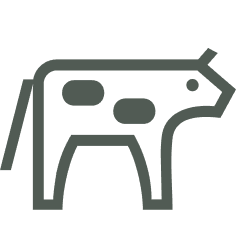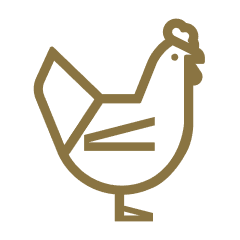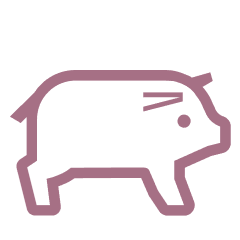Vetagro Journal Club, #5
Animal production is pointed out as one of the main culprits of environmental problems such as climate changes, sustainability, antibiotic resistance, and diseases. We live in a society where the scientific knowledge about livestock biology is at its peak, but some consumers tend to follow emotions while pondering their food choices.
In this contrasting scenario we just need to be realistic: the world population is increasing, most of these people live in developing countries, and veggie diet, pasture animals, or lab-produced meat cannot solve the problem of global hunger. But the idea that intensive farming is the same as animal mistreatment, unconditional exploitation, and pollution has no basis in the reality of the facts. Maximization of animal production passes through animal welfare, health, and precision nutrition, and is inversely proportional to pollution and waste.
Just an example: dairy cows need amino acids to produce milk and improve milk protein yield. In particular, they need a correct dietary balance of limiting amino acids methionine and lysine. On the other hand, protein consumption is the main cause of animal nitrogen waste and environmental pollution. Here is where precision nutrition can make a difference in terms of sustainability: the simple reduction in dietary protein unbalances amino acid intake, affecting animal production without any improvement of nitrogen metabolism. The results are lower milk protein and yield with the same (or worst) nitrogen emission. On the contrary, investing in rumen bypasses amino acids to balance the diet, returns in the fulfillment of animal requirements, higher production, improved nitrogen metabolism, and lower nitrogen loss with manure.
Another example is about greenhouse gas emission which is inversely proportional to farm productivity: the higher the productivity, the lower the emission of greenhouse gas per cow. Inefficiency is always harmful from any point of view. Moreover, livestock production supplied 25% of protein and 18% of calories consumed globally in 2016, both of which are required for nutritional security.
Feeding the world sustainably is an important goal to achieve and we can’t think of doing so by simply reducing animal food sources as poverty can’t be fought without livestock production. Our commitment as nutritionists, veterinarians and farmers is to promote good management practice, keeping in mind that the key to sustainability is the maximization of animal welfare and production efficiency.
Visit the page dedicated to #WorldMilkDay and enjoy the video interviews on the main challenges for the future in dairy cow nutrition:
from global warming to sustainability, passing through animal-free meat and efficiency of livestock – a deep reflection on the role of the modern feed industry
Adesogan et al., 2020 – Animal source foods: Sustainability problem or malnutrition and sustainability solution? Perspective matters (here)For more information contact us at: marketing@vetagro.com








